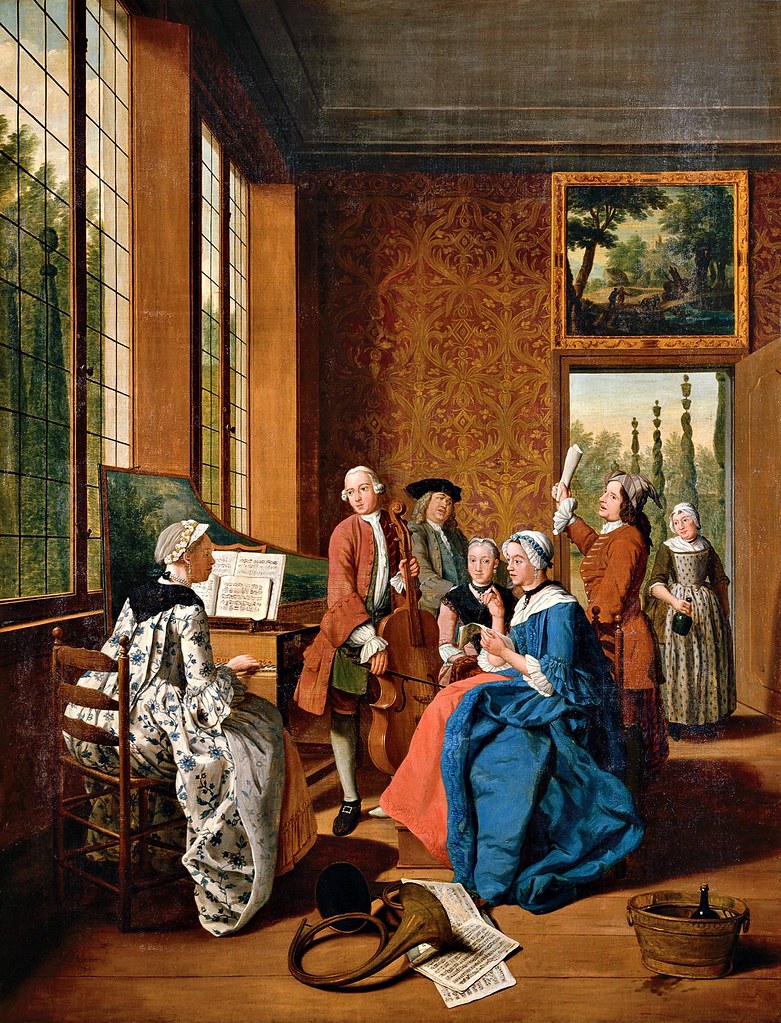Johann Schobert (1720-1767)
- Concerto IV pour le clavecin avec accompagnement de deux violons,
alto et basse et deux cors de chasse ad libitum... op. XV
Performers: Anne Marie Beckensteiner (1925-2021, clavecin); Jean
François Pаillаrd Chamber Orchestra;
Jean François Pаillаrd (1928-2013,
conductor)
Further info: Johann Schobert (1735-1767) - Sonata IV pour le clavecin avec accompagnement de violon et basse
---
German composer and keyboardist. Nothing is known about his origins or
youth; there is differing information on his birth date, which ranges
from 1720 to 1740. Gerber’s Historisch-biographisches Lexicon der
Tonkünstler, however, gives Strasbourg as his place of birth (though the
name occurs in no contemporary Alsatian records), and Schubart in his
autobiography claimed Schobert as a kinsman, supposedly from Nuremberg.
Schobert first appeared in Paris in 1760, where he began a career as a
keyboard virtuoso, eventually publishing 20 sets of works. In 1761 a few
of his pieces appeared in the pasticcio Le tonnelier, and in 1765 he
unsuccessfully attempted to become a composer of opéra comique with the
comedy Le garde-chasse et le braconnier. He found employment with Louis
François I de Bourbon, Prince of Conti, however. Throughout his career
he achieved some fame for his expressive performances and works, in
addition to being a rival of Johann Gottfried Eckard. He died along with
his family, a servant, and four friends as a consequence of eating
poisonous mushrooms. His musical style was influenced by that of
Mannheim, although he was noted for his expressive melodies. His works
include 21 violin sonatas, six symphonies, seven trio sonatas, five
harpsichord concertos, three keyboard quartets, and several sonatas and
miscellaneous works for harpsichord. Schobert greatly influenced
Wolfgang Amadeus Mozart, who admired his music warmly. The work which
most impressed the seven-year-old composer seems to have been the D
major Sonata of op.3; imitation of this sonata and others can be traced
in Mozart’s subsequent Parisian and English sonatas. Movements from
Schobert’s sonatas also appear recast in Mozart’s earliest piano
concertos. His fascination for Schobert’s music was not merely fleeting:
when Mozart was in Paris in 1778 he taught his pupils Schobert’s
sonatas, and the A minor Sonata k310, composed in Paris, contains in its
Andante an almost literal quotation from a movement of Schobert’s op.17
no.1 that Mozart had already arranged years before in a concerto.

Cap comentari:
Publica un comentari a l'entrada